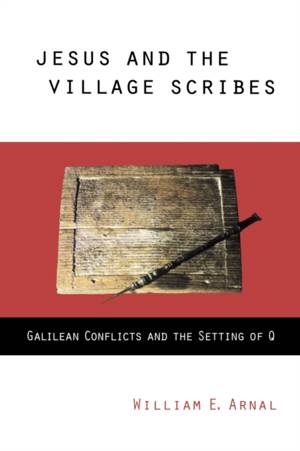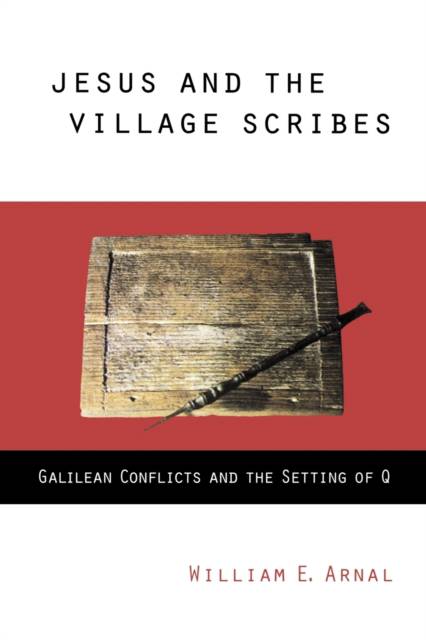
- Afhalen na 1 uur in een winkel met voorraad
- Gratis thuislevering in België vanaf € 30
- Ruim aanbod met 7 miljoen producten
- Afhalen na 1 uur in een winkel met voorraad
- Gratis thuislevering in België vanaf € 30
- Ruim aanbod met 7 miljoen producten
Jesus and the Village Scribes
Galilean Conflicts and the Setting of Q
William E ArnalOmschrijving
This volume challenges Gerd Theissen's dominant thesis of "wandering radicals" as the earliest spreaders of the Jesus tradition. Several conclusions emerge: (1) the textual evidence for the "wandering radicals" hypothesis is not tenable and it must be replaced with one that more closely comports with the evidence: (2) the immediate context of the Jesus movement, and of Q in particular, is the socio-economic crisis in Galilee under the Romans; and (3) the formation of Q is the product of Galilean village scribes in the Jesus movement reacting to the negative developments in Galilee that affected their social standing.
Arnal moves decisively beyond earlier Q studies, which focused almost exclusively on literary history without dealing with the social realitites of the first century.
Specificaties
Betrokkenen
- Auteur(s):
- Vertaler(s):
- Uitgeverij:
Inhoud
- Aantal bladzijden:
- 304
- Taal:
- Engels
Eigenschappen
- Productcode (EAN):
- 9780800632601
- Verschijningsdatum:
- 1/01/2001
- Uitvoering:
- Paperback
- Formaat:
- Trade paperback (VS)
- Afmetingen:
- 153 mm x 229 mm
- Gewicht:
- 494 g

Alleen bij Standaard Boekhandel
Beoordelingen
We publiceren alleen reviews die voldoen aan de voorwaarden voor reviews. Bekijk onze voorwaarden voor reviews.









